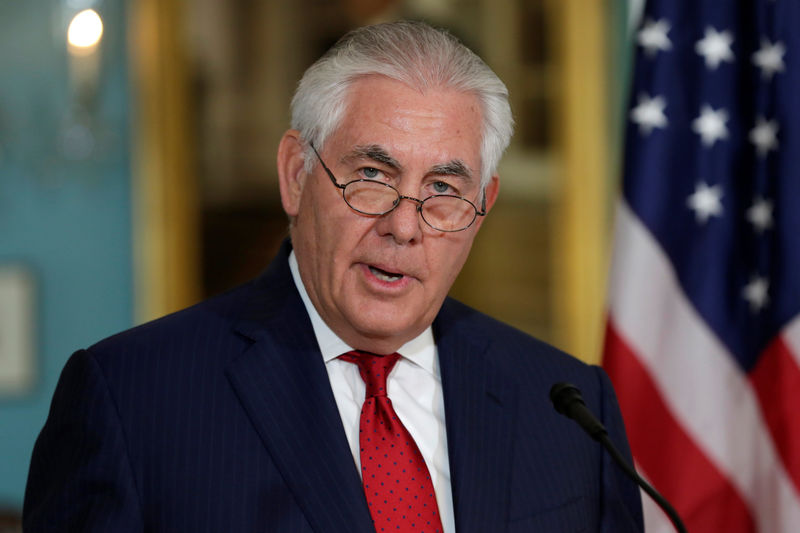WASHINGTON (Reuters) - President Donald Trump will be presented with multiple options regarding the future of the Iran nuclear deal ahead of an Oct. 15 deadline to certify whether Tehran is complying with the pact, Secretary of State Rex Tillerson said on Wednesday.
Tillerson did not disclose details about the kinds of options he will present to Trump. He also declined to directly answer a question about whether he shared Defense Secretary Jim Mattis' assessment to Congress on Tuesday that Iran was "fundamentally" in compliance with the accord.
"We'll have a recommendation for the president. We're going to give him a couple of options of how to move forward to advance the important policy toward Iran," Tillerson told reporters at the State Department.
A collapse of the 2015 deal, which Trump has called "an embarrassment," but which is supported by the other major powers that negotiated it with Iran, could trigger a regional arms race and stoke Middle East tensions.
A senior U.S. official said last month that Trump was leaning toward not certifying that Iran is complying with the pact. Trump himself has said he already had made up his mind whether to keep the pact, but has declined to disclose his decision.
If Trump declines to certify Iran's compliance, U.S. congressional leaders would have 60 days to decide whether to reimpose sanctions on Tehran suspended under the accord.
Unlike Mattis, who publicly suggested Trump should consider sticking with the agreement, Tillerson has been highly critical of the accord and said it must be changed.
He has taken aim at the deal's so-called sunset clauses, under which some of the restrictions on Iran's nuclear program expire over time.
Tillerson on Wednesday suggested that whatever path the United States chooses on the nuclear accord known as the Joint Comprehensive Plan of Action (JCPOA), it would only represent one component of America's broader policy toward Iran.
"The JCPOA represents only a small part of the many issues that we need to deal with when it comes to the Iranian relationship," he said.

"So it is an important part of that, but is not the only part. And I've said many times, we cannot let the Iranian relationship be defined solely by that nuclear agreement."